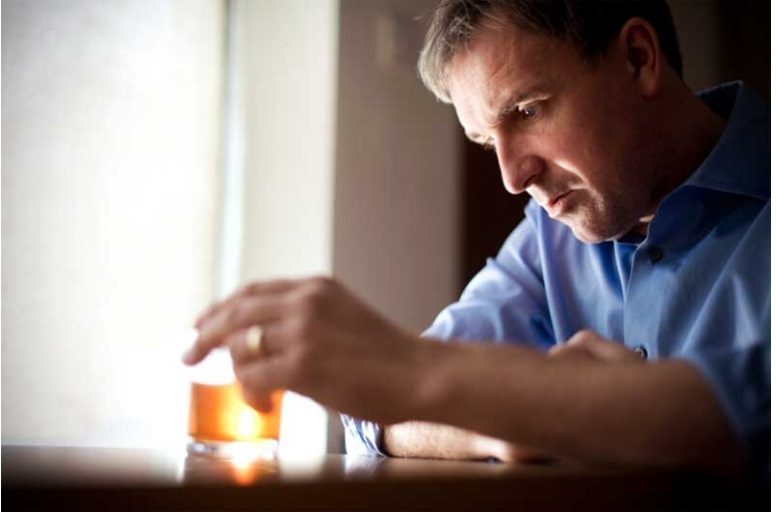Am I an alcoholic? If you find yourself asking this question, the reality is that, at the very least, you may have a problem with drinking. Alcohol addiction, also known as alcoholism, is an Alcohol Use Disorder (AUD) and exists on a different level from merely drinking heavily on occasion. You can even be mildly alcohol dependent but not necessarily be an alcoholic.
Here we look at the characteristics, signs, and symptoms that define alcoholism as a chronic alcohol use disorder, the possible implications of being a sufferer, and how you can get help if you are an alcoholic.
What Makes You an Alcoholic?
An alcoholic is someone who suffers from alcohol addiction/alcoholism, which is a chronic and progressive disorder of the brain. Alcoholism is characterised by a preoccupation with alcohol, excessive drinking, frequent loss of control of the amount of alcohol consumed, and the continuation of drinking despite mounting negative consequences.
As a medically recognised disorder, there are various stages of alcoholism. At best, a person can still function, hold down a job, and maintain some form of relations with their family (functioning alcoholic). At worst, being an alcoholic can be debilitating, all-consuming, and life-threatening.
Alcoholism, classed as a substance abuse disorder in the Diagnostic and Statistical Manual of Mental Health Disorders (DSM-5), is clinically considered both a physical disease (of the brain) and a mental health disorder. Someone who has a drinking problem suffers from an overwhelming compulsion to drink alcohol and has very little control over their intake and actions while intoxicated.
Once sober, an alcoholic will still find it very difficult to control their impulsiveness around alcohol, which is why alcoholism is also characterised by repeated relapse.
How Do I Tell If I Am an Alcoholic?
To be diagnosed with an alcoholic, you would need to meet at least two of the following clinical criteria within the same 12 month period:
- Drinking more alcohol or for longer than you intended
- Being unable to reduce, moderate or stop alcohol despite a desire to do so.
- Spending a lot of time obtaining, using, and recovering from the effects of alcohol.
- You have cravings or a strong overwhelming desire for alcohol.
- Being unable to fulfil important obligations and commitments at home, work or school because of alcohol consumption
- Continuing to abuse alcohol despite negative consequences to your social, personal and work life.
- Losing interest in recreational activities or hobbies because of alcohol
- Using alcohol in physically dangerous situations (such as driving or operating machinery).
- Continuing to abuse alcohol despite the presence of harm to your physical or mental wellbeing.
- Developing a tolerance to alcohol (i.e. needing to drink increasingly large or more frequent amounts to achieve the desired effect).
- Developing symptoms of alcohol withdrawal when efforts are made to stop drinking.
Rehab guide can further simplify these criteria to:
- Once you start drinking you lose control of the amount you drink and the consequences that follow
- When you are trying not to drink, the obsession (constant thinking or overwhelming desire) to drink always takes you back to alcohol
- You suffer negative consequences as a direct result of your drinking yet are still unable to stop or moderate your intake
Identifying with these statements indicates that you are probably an alcoholic and should seek a professional diagnosis and help for your condition. The earlier alcoholism is treated, the less harm is endured by the sufferer and inflicted on their loved ones.

John has dedicated his life to finding treatment for those with addictions and supporting their families.
A business manager for 20 years in the construction industry John’s own experience of addiction led him to found his own rehab centre group in Scotland.
John qualified as a counsellor for people with substance misuse during his time working as a therapist and manager for the foundation. He also trained as an interventionist and appeared on ITV as a consultant helping families impacted by addiction.
He has helped thousands of people in recovery and his knowledge of the rehabilitations process and the addiction experience is unparalleled.


